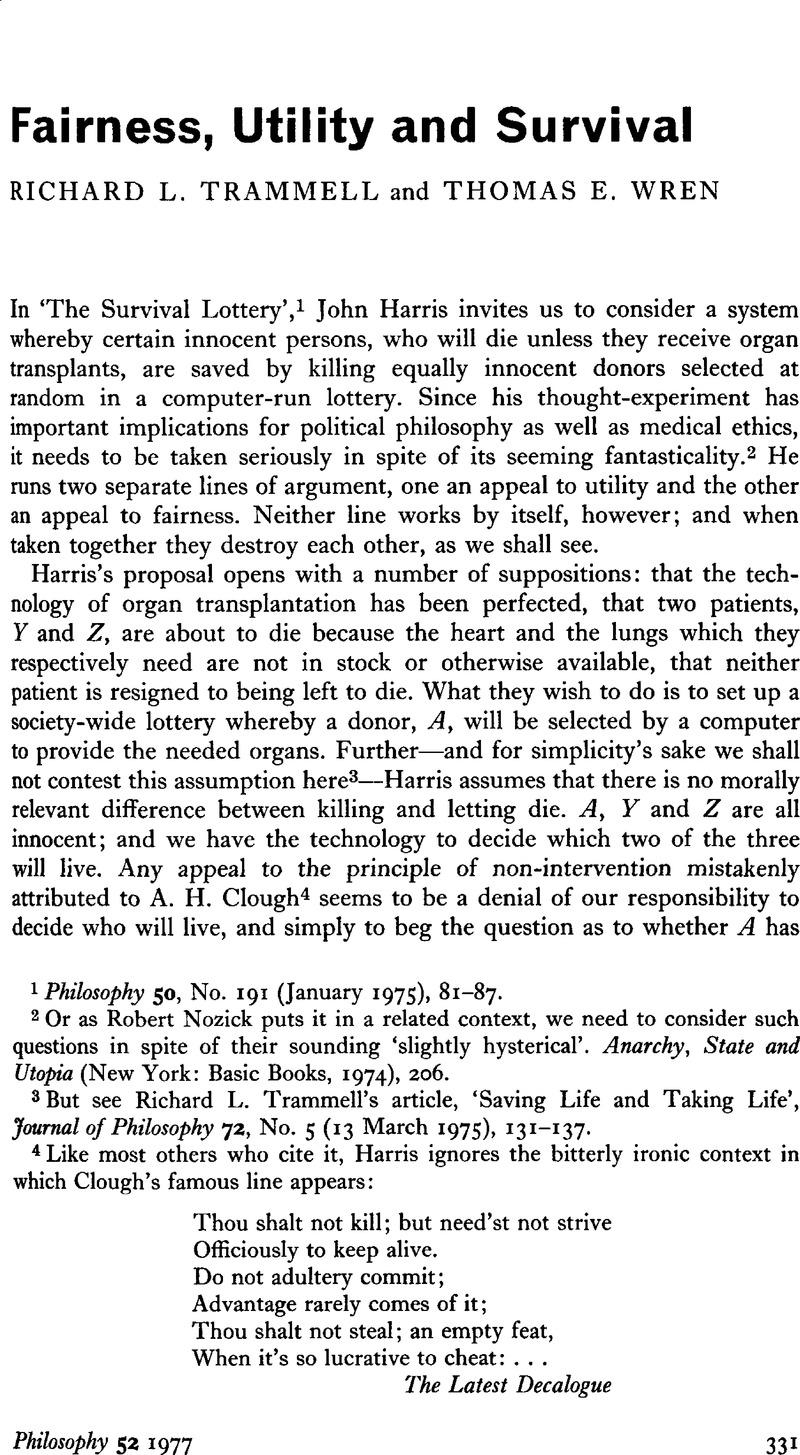Published online by Cambridge University Press: 30 January 2009

1 Philosophy 50, No. 191 (07 1975). 81–87.Google Scholar
2 Or as Robert Nozick puts it in a related context, we need to consider such questions in spite of their sounding ‘slightly hysterical’. Anarchy, State and Utopia (New York: Basic Books, 1974), 206.Google Scholar
3 But see Trammell's, Richard L. article, ‘Saving Life and Taking Life’, Journal of Philosophy 72, No. 5 (13 03 1975), 131–137.CrossRefGoogle Scholar
4 Like most others who cite it, Harris ignores the bitterly ironic context in which Clough's famous line appears:
Thou shalt not kill; but need'st not strive
Officiously to keep alive.
Do not adultery commit;
Advantage rarely comes of it;
Thou shalt not steal; an empty feat,
When it's so lucrative to cheat:…
The Latest Decalogue
5 Cf. Barry, Brian, Political Argument (London: Routledge and Kegan Paul, 1965), Ch. 6Google Scholar, and Rawls, John, A Theory of Justice (Cambridge, Mass.: Harvard University Press, 1971), 85–86.Google Scholar
6 Does Harris realize what Y and Z are really up to here? Apparently not, for he writes, ‘The problem of narrowing down the class of possible donors without discriminating unfairly against some sub-class of society is, I suspect, insoluble’ (p. 86).